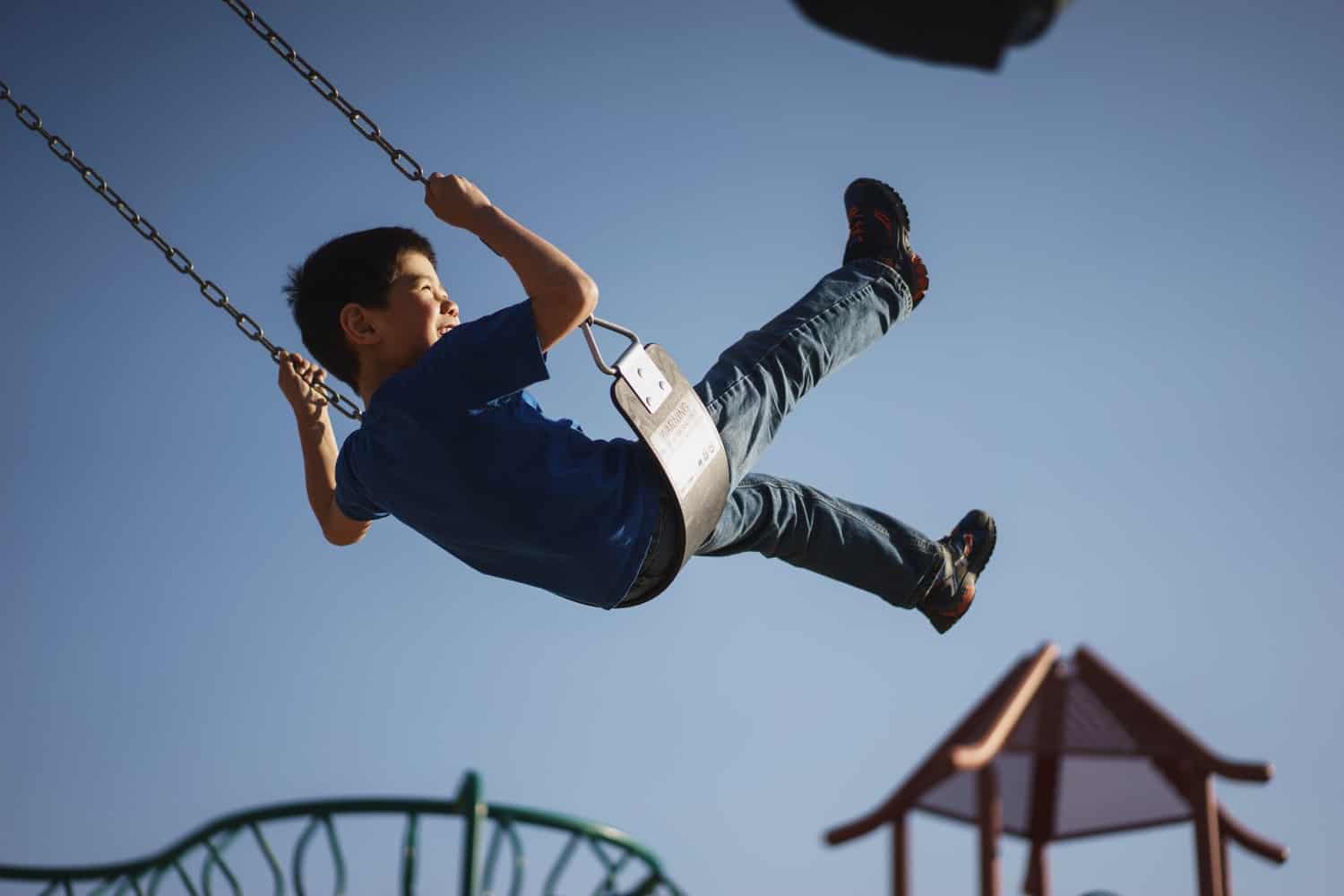Beloved educator and children’s television host Fred Rogers once said, “Play is often talked about as if it were a relief from serious learning. But for children, play is serious learning.”
There’s more truth to this quote than you might expect. Play can lead to social-emotional and intellectual growth, and it should be treated less as a break from learning and more as something just as essential. But how does play lead to growth, and what is the best way to nurture play in school?
In this article, we’ll define what play is and why it helps students develop the cognitive and social-emotional skills they need to succeed. Then, we’ll include a few quick tips for you to bring play into your classroom.
What Is Play?
 It may sound a little silly to describe “play.” After all, we were all children once, and it’s almost impossible to find a child who has never played. But defining play is crucial to understanding why it matters so much in early childhood.
It may sound a little silly to describe “play.” After all, we were all children once, and it’s almost impossible to find a child who has never played. But defining play is crucial to understanding why it matters so much in early childhood.
In a nutshell, play is defined here as activities children engage in solely for having fun and not for a specific purpose. Generally, the play that children engage in is not guided by an adult and is more self-directed.[1] Children may play independently or in a group, but the key is that they decide the rules and focus.
Why Is Play Important? The Mental and Social-Emotional Benefits
Now, why is play so essential for children? The benefits of play are wide-ranging, with both social-emotional and academic gains. Let’s go over a few of the most notable findings from educational research to show just how crucial unstructured play can be.
First, play helps children build self-confidence.[4] When children are free to explore their ideas in a non-judgmental space, they’ll be better able to trust themselves and their ideas. Children can also learn social skills when they are playing with their peers.[10] Plus, spontaneous play helps children learn to cope with stress in healthy ways by teaching them to think flexibly.[7]
Play may also have an important role in intellectual development, according to Harvard educators.[6] When children are given time to play, they experience growth in memory, language, and symbol recognition skills.[8] Playtime is also linked to learning readiness, which means that students can feel more engaged and prepared in class.[5]
Best of all, play gives children the opportunity to think creatively.[3] Creative thinking skills are more than just fun: they can play a role in mood and brain development, too.
In short, engaging in play can lead to the following benefits for kids—none of which you’ll want your students to miss out on:
- Self-confidence
- Creativity
- Social skills
- Memory, language, and symbol recognition
- Stress management
Why Is Recess Important?

Recess is one of the most important opportunities for children to play. Yet it is often the first to go when educators are looking for activities to cut. One study from the American Academy of Pediatrics even found that over the span of 10 years, the number of kindergarten classrooms with a recess period decreased from 96% to 70%.[5]
It can be tempting for schools to shorten recess in favor of more academic time. But the benefits of recess and outdoor play in general mean we can’t afford to take them away.[15] Physical activity, for example, leads to stronger brain function and ultimately gets children in a better mindset to learn.[14]
Additionally, students on average have higher ratings from teachers on classroom behavior if they have free time to play.[16] Moving from one academic subject to another all day doesn’t give children the time they need to recharge. And an absence of play can even lead to higher stress levels for children, making it all the more important for your students’ emotional health that recess be included.[11]
Strategies to Bring Play in the Classroom
Now that you know what play is and why it can be as important as academics for your students’ well-being, let’s go over a few tips for both indoor and outdoor play in schools. Whether you’re a preschool or elementary school teacher, you’re sure to find the ideas you need to help your students learn through play.
Provide Time and Space for Play
The Massachusetts Department of Education and Care recommends offering children the time, space, and materials they need to play—like holding recess or stocking your classroom with art supplies.[12] It can also be helpful to consider creating a classroom makerspace—an area in your classroom stocked with creative tools that your students can use during free periods.
Avoid Questioning or Quizzing Children on Play
When children are able to engage in self-directed play, they’re more likely to sharpen their creativity skills. According to the Seattle Children’s Hospital, asking children questions in an attempt to “guide” their play into something more educational can dampen this effect.[2]
Instead, allow students to choose the focus and direction of how they play to learn. Guided activities will always have a place in the classroom, but because play has a different purpose, it’s best to keep them separate.
Emphasize the Importance of Play with Families
If you are distance or hybrid teaching, it can be tough to make time for play in your classroom schedule. Educator Madeline Rogin recommends emphasizing with families that unstructured playtime is just as crucial as learning time so they make room for both at home.[13]
To get families started, Raising Children has plenty of ideas for self-directed play available, including:
- Outdoor play
- Arts and crafts
- Dress-up games
- Sound and music play
Sources:
- Gray, P. The Evolutionary Importance of Self-Directed Play. The Genius of Play. https://thegeniusofplay.org/genius/expert-advice/articles/the-evolutionary-importance-of-self-directed-play#.YG8ocEhKjfY
- Seattle Children’s Hospital. Child-Directed Play. https://www.seattlechildrens.org/health-safety/keeping-kids-healthy/development/child-directed-play/.
- Raising Children. School-age children at play. https://raisingchildren.net.au/school-age/play-media-technology/getting-play-started/school-children-at-play
- WellJourn. Encouraging Self Directed Play for Your Montessori Preschooler. January 2020. https://www.welljourn.org/2020/01/encouraging-self-directed-play-for-your-montessori-preschooler/.
- Ginsberg, K.R. The Importance of Play in Promoting Healthy Child Development and Maintaining Strong Parent-Child Bonds. Pediatrics: Official Journal of the American Academy of Pediatrics, January 2007, 119(1), pp. 182-191.
- Shafer, L. Summertime, Playtime. Harvard Graduate School of Education. June 2018. https://www.gse.harvard.edu/news/uk/18/06/summertime-playtime.
- Berkowicz, J., and Myers, A. The Importance of Play. Education Week. April 2014. https://www.edweek.org/teaching-learning/opinion-the-importance-of-play/2014/04
- Sussman, K.S. The importance of play in the preschool classroom. Texas Child Care Quarterly, 2012, 36(3). https://children.alabama.gov/wp-content/uploads/2017/12/Importance-of-Play-article.pdf,
- Wisconsin Department of Public Instruction. Early Childhood Education and Importance of Play. January 2019. https://dpi.wi.gov/news/dpi-connected/early-childhood-education-and-importance-play.
- Heden, R., and Sandberg, A. Play’s importance in school. Education Journal, June 2011, 39(3), pp. 317-329.
- Armstrong, M., and Zapata, K. The Importance of Play: How Kids Learn by Having Fun. Healthline. September 2020. https://www.healthline.com/health/the-importance-of-play.
- Massachusetts Department of Early Education and Care. School-Age Child Guidance Technical Assistance Paper. https://www.mass.gov/files/documents/2016/08/mo/child-guidance-school-age3.pdf.
- Rogin, M. Emphasizing the Importance of Play During Distance Learning. Edutopia. July 2020. https://www.edutopia.org/article/emphasizing-importance-play-during-distance-learning.
- Brooks, A. The Importance of Recess: Why Schools Need More Playtime. Rasmussen University. June 2018. https://www.rasmussen.edu/degrees/education/blog/importance-of-recess/.
- American Academy of Pediatrics. The Crucial Role of Recess in School. Pediatrics: Official Journal of the American Academy of Pediatrics, January 2013, 131(1), pp. 183-188.
- Harvard Health Publishing. The Importance of Recess. Harvard Medical School. July 2015. https://www.health.harvard.edu/exercise-and-fitness/the-importance-of-recess.

